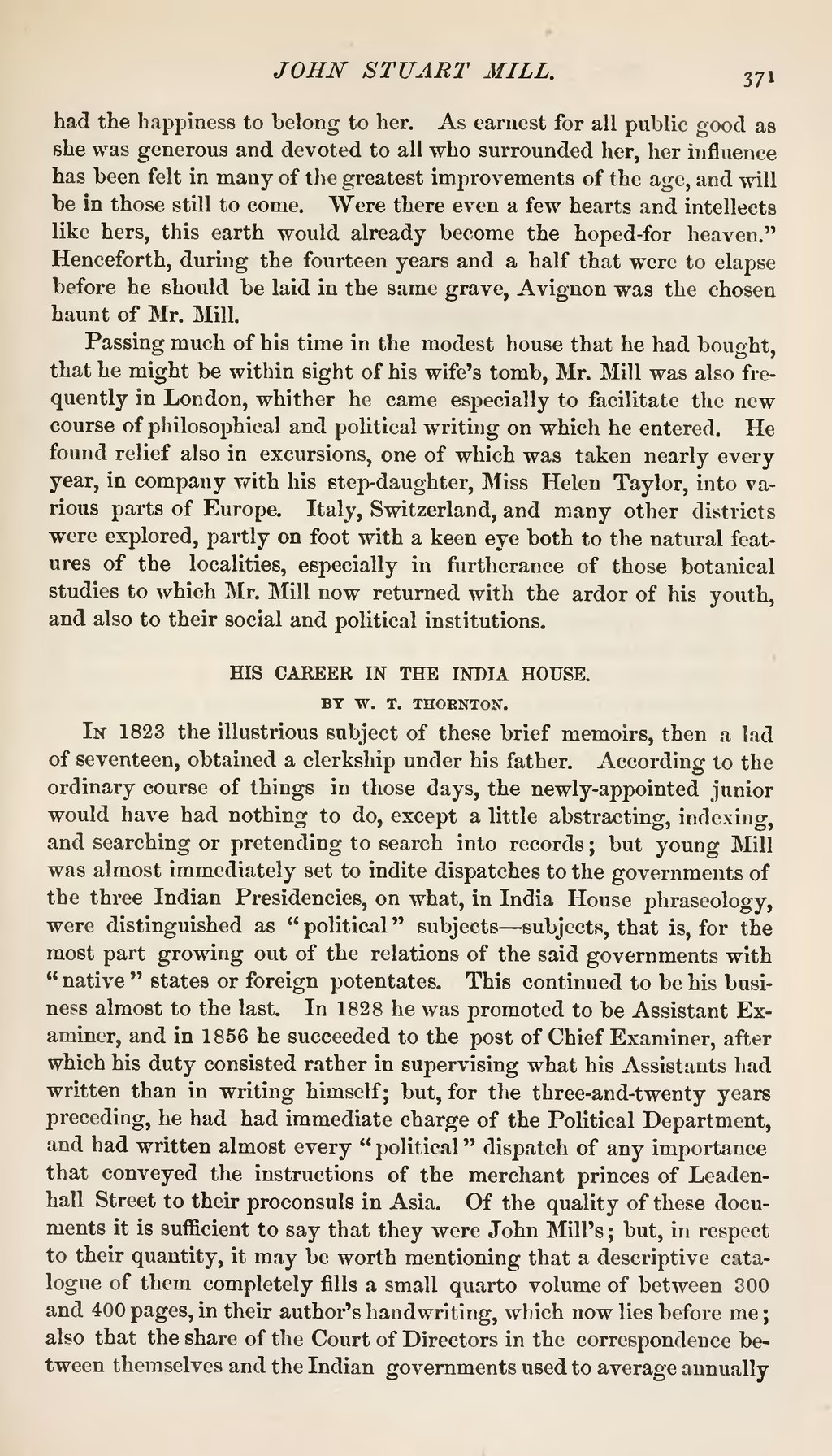had the happiness to belong to her. As earnest for all public good as she was generous and devoted to all who surrounded her, her influence has been felt in many of the greatest improvements of the age, and will be in those still to come. Were there even a few hearts and intellects like hers, this earth would already become the hoped-for heaven." Henceforth, during the fourteen years and a half that were to elapse before he should be laid in the same grave, Avignon was the chosen haunt of Mr. Mill.
Passing much of his time in the modest house that he had bought, that he might be within sight of his wife's tomb, Mr. Mill was also frequently in London, whither he came especially to facilitate the new course of philosophical and political writing on which he entered. He found relief also in excursions, one of which was taken nearly every year, in company with his step-daughter, Miss Helen Taylor, into various parts of Europe. Italy, Switzerland, and many other districts were explored, partly on foot with a keen eye both to the natural features of the localities, especially in furtherance of those botanical studies to which Mr. Mill now returned with the ardor of his youth, and also to their social and political institutions.
HIS CAREER IN THE INDIA HOUSE.
BY W. T. THORNTON.
In 1823 the illustrious subject of these brief memoirs, then a lad of seventeen, obtained a clerkship under his father. According to the ordinary course of things in those days, the newly-appointed junior would have had nothing to do, except a little abstracting, indexing, and searching or pretending to search into records; but young Mill was almost immediately set to indite dispatches to the governments of the three Indian Presidencies, on what, in India House phraseology, were distinguished as "political" subjects—subjects, that is, for the most part growing out of the relations of the said governments with "native" states or foreign potentates. This continued to be his business almost to the last. In 1828 he was promoted to be Assistant Examiner, and in 1856 he succeeded to the post of Chief Examiner, after which his duty consisted rather in supervising what his Assistants had written than in writing himself; but, for the three-and-twenty years preceding, he had had immediate charge of the Political Department, and had written almost every "political" dispatch of any importance that conveyed the instructions of the merchant princes of Leadenhall Street to their proconsuls in Asia. Of the quality of these documents it is sufficient to say that they were John Mill's; but, in respect to their quantity, it may be worth mentioning that a descriptive catalogue of them completely fills a small quarto volume of between 300 and 400 pages, in their author's handwriting, which now lies before me; also that the share of the Court of Directors in the correspondence between themselves and the Indian governments used to average annually
